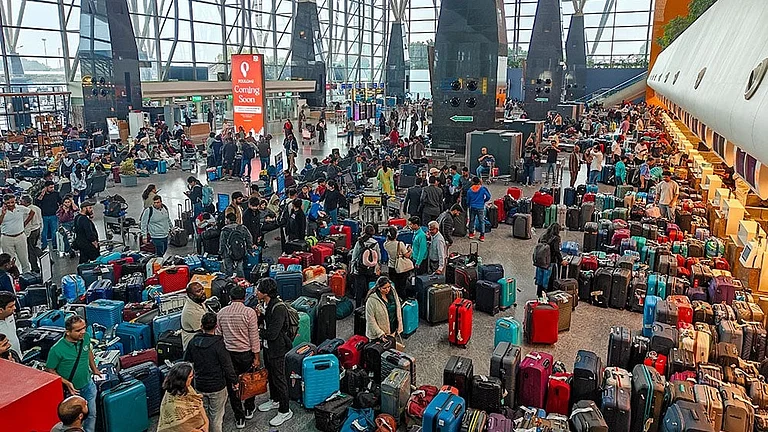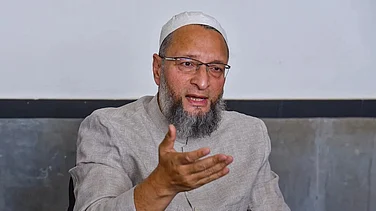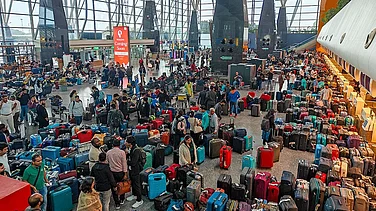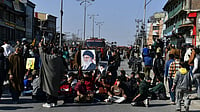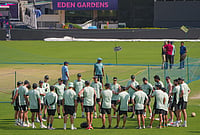India's outlook for the Indo-Pacific emphasises respect for sovereignty and territorial integrity of all states in the region, peaceful resolution of disputes and avoidance of use of force, Army Chief Gen Manoj Pande said on Tuesday.
His comments at the inaugural session of the India-hosted 13th Indo-Pacific Armies Chiefs' Conference (IPACC) came against the backdrop of China's growing military assertiveness in the Indo-Pacific as well as the lingering border row in eastern Ladakh.
"The challenges we face are significant, but so is our collective wisdom and strength. It is through open dialogue and exchange of ideas that we will find innovative solutions to the challenges," he said in presence of military delegates from around 35 countries.
"Let us recognise that while our methods and means towards achieving our objectives may differ, yet our goal is the same, that is, a free and open Indo-Pacific," he added.
Highlighting the geo-political significance and geo-economic weight of the Indo-Pacific nations, Gen Pande said it is evident from the fact that the region accounts for 65 per cent of the world's population, 63 per cent of the global GDP and 50 per cent of the world's maritime trade.
"Hence, the impact of geographic and economic indispensability of the region to the world, naturally accords it the role of the pivotal theatre in the contemporary geo-strategic canvas," he said.
The chief of Army Staff said India's commitment towards "positively engaging" all stakeholders in the Indo-Pacific has been "unwavering and enduring" over the years.
"India's strategic location, astride the vital sea lanes of communication, in the Indo-Pacific, propels us as a key player in the region's discourse," he said.
"Our outlook emphasises respect for sovereignty and territorial integrity of all nations in the region, equality of all, peaceful resolution of disputes, avoidance of use of force and adherence to international laws, rules and regulations," he said.
Chief of Staff of the US Army General Randy George and several chiefs of armies were among the delegates at the two-day conference. The US Army is the co-host of the conference.
India also showcased some of its indigenously-developed military platforms at an exhibition that has been organised as part of the conference.
"While efforts by countries are converging towards effecting a free and stable Indo-Pacific, yet we are witnessing manifestations of inter-state contestations and competitions," Gen Pande observed.
"The challenges we face transcend across borders, and our response to them must factor this. The Indo-Pacific region is not merely a collection of nations -- it is a web of interdependencies," he said.
"We are bound by geography, and our destinies are intertwined. The security and prosperity of one nation is intrinsically linked to the security and prosperity of its neighbours, and much beyond. Therefore, each one of us has an important and a pivotal role to play," he said.
Gen Pande pitched for greater cooperation in the spheres of security, connectivity and economy among the littoral states in the Indo-Pacific region.
"From a definitional perspective, the construct of 'Indo-Pacific' largely hints at primacy of navies, in the security stakeholdership of the region," he noted.
"While there is no denying this, the role of other components of armed forces remains profoundly relevant. Apart from challenges exclusively in the maritime domain, a wide range of security and humanitarian concerns exist on land, too," he said.
"These range from territorial disputes over land masses, or in some cases even over artificially expanded islands to acquire real estate and establish military bases, transnational threats of terrorism, consequences of climate change impacting the inhabited islands or coastal areas of rim nations and natural calamities," he added.
Gen Pande observed that these challenges are manifesting as "threats, singularly or plurally, impacting one or more nations amongst us".
He said cooperation amongst the land forces, hence, is a critical component of the collective response.
"Though bilateral and multilateral engagements between components of armed forces of our nations have been ongoing, this forum provides a collective platform to share perspectives, comprehend unique manifestations, identify priorities, and aggregate our response methodology," he said.
Ahead of the inaugural session of the conclave, Gen Pande said at a media briefing that the Indo-Pacific construct has come to occupy central space in contemporary "geo-strategic canvas".
"Its significance is a reflection of the evolving dynamics in the political, security, economic and environmental domains of today's world," he said.
"The region is not only a cauldron of cultures, histories, resources and opportunities, but is also a theatre of complexities and challenges. The percentage of the global population residing in the region," he said.
The Army chief said the region's share in the global GDP, its share in merchandise market and maritime trade lend this region a pivotal stature in charting the world's course in the 21st century.
The IPACC, instituted as a biennial event in 1999, is attended by Army chiefs of countries of the Indo-Pacific region, to discuss issues of mutual interest.



